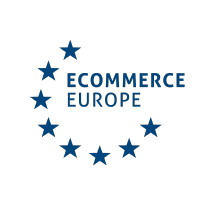
Here you can download the letter from the European Commission to E-Commerce Europe (PDF)
Brussels, 24 March 2021
EUROPEAN COMMISSION
DIRECTORATE-GENERAL
TAXATION AND CUSTOMS UNION
Indirect Taxation and Tax Administration
Dear Mr Cassetti,
I refer to your letter of 3 March 2021 that you have also shared with Commissioner Paolo Gentiloni. In this letter you express Ecommerce Europe’s concerns regarding the implementation of the EU VAT e-commerce package. I fully understand the challenges your sector is facing due to the Covid 19 pandemic and the UK withdrawal. The new VAT rules on e-commerce must indeed serve to level the playing field between EU and non-EU traders while simplifying the administrative burden. Please find below the Commission services replies to these outstanding issues that have been flagged by your members.
Member States’ operational readiness
Member States are doing their utmost to be ready with their IT developments by July. The Commission is closely following up their readiness via regular meetings and with the use of national project plans. Germany and the Netherlands have now officially and publicly confirmed that they would meet the July 2021 deadline. Both have also started their communication campaign on the subject.
However, on the customs side, the legal deadline for Member State to update their National Import System is 31 December 2022 according to the UCC Work Programme. In order to enable the implementation of the new VAT e-commerce rules, certain transitional measures have been introduced that will apply as of 1 July. According to these rules, Member States are allowed to use their existing customs IT system for processing the declarations for release for free circulation using the full or the simplified declaration dataset from the Commission Delegated Regulation No 2016/341 (Transitional Delegated Act – TDA). Following the feedback received during the UCC evaluation questionnaire, Member States’ progress is promising, most of them will manage to complete the necessary IT developments by July. Member States’ unilateral measures that deviate from the aims of the EU VAT E-commerce Package
We understand that national deviations or unilateral approaches may bring complexity for businesses.
For Germany, you write that the marketplace liability to check if their EU sellers have a regular VAT registration in Germany remains in place.
You seem to refer to the amendments of section 22f and 25e of the German VAT Act, which will enter into force on 1 July 2021. In addition to the deemed-supplier rule, Germany will indeed provide for a joint and several liability of marketplaces which can be avoided only if the operator of the marketplace complies with certain obligations. This presupposes, amongst other things, that the supplier possesses, at the time of supply, a valid German VAT identification number. There seems to be no exceptions from this obligation for taxpayers that, in principle, do not need to be registered in Germany, either because they are registered in the One Stop Shop in another Member State or because their supplies, although having Germany as the Member State of destination, are not taxable in Germany because they remain below the relevant threshold.
You might be aware that a letter of formal notice has been sent to Germany regarding the currently applicable requirement for marketplaces to produce a paper certificate which has been provided by the German Tax Administration to businesses selling on their electronic platform in order to avoid to be held jointly liable for any unpaid VAT of these supplies. This requirement of a paper certificate will be replaced with effect 1 July 2021 by the requirement that the supplier possesses a valid VAT registration in Germany mentioned above.
The Commission services are assessing if and how Germany will effectively exclude that requirement for marketplaces as far as taxable persons supplying to German customers over electronic marketplaces that should not need to register for VAT in Germany are concerned. I would like to assure you that the Commission will take the appropriate steps in this regard.
As regards France, your letter refers to the provisions of Article 293 A ter of the French General Tax Code (CGI). You stress that this measure goes beyond the scope of the EU VAT e-commerce package and would be contrary to the proportionality principle. You also indicate that this is red tape, that there would be no operational guidelines and no IT system. We understand that this measure (which applies to imported consignments with a value exceeding 150 euros) aims at fighting against tax fraud. It enables the tax administration to request (gradual) measures from the platforms in case there is a presumption that a person does not comply with VAT obligations. Ultimately, the platform can become jointly liable if it does not take the requested measures.
It should be noted that pursuant to Article 273 of the VAT Directive, Member States may impose other obligations which they deem necessary to ensure the correct collection of VAT and to prevent evasion. As regards Article 293 A ter of the French General Tax Code (CGI), please note that, according to our information, there are some operational guidelines published (Article 190 of the Annex IV of the CGI).
If you consider that this measure infringes EU law, you have the possibility to file a formal complaint with the Commission, using the form available on our website. Such would have to explain precisely why you consider that this French provision is not in line with EU law and does not comply with the proportionality principle.
Transitional period
For the VAT e-commerce package in itself, there is no transitional period: the EUR 22 threshold is removed without transitional measure as of 1 July 2021. The OSS/IOSS schemes can only be used for orders from 1 July 2021.
However to fulfil the new customs processes, postal operators will have a transitional period until the end of the deployment window for ICS2, i.e. until 1 October 2021. Until that date, they may continue declaring the goods up-to EUR 150 by any other act, by their presentation to customs, under the conditions that:
The import VAT is not collected through IOSS or the special arrangements,
The goods are accompanied by a CN22 or CN23 that is made available to customs,
The goods are subject to customs duty relief based on Articles 23(1) or 25(1) of Regulation 1186/2009 and
The customs authorities accept the declaration by any other act and VAT can be collected.
Moreover, express carriers may also use the special arrangements already for the consignments to be delivered in July 2021.
The Commission services are doing their utmost to accompany the Member States and the businesses in the implementation of these new rules. Hopefully this letter brings the necessary clarifications on the concerns of your members.
Yours sincerely,
Patrice Pillet Head of Unit

